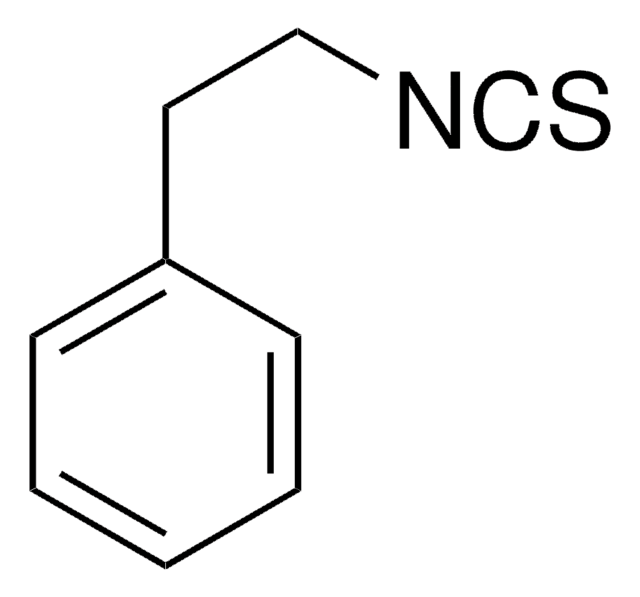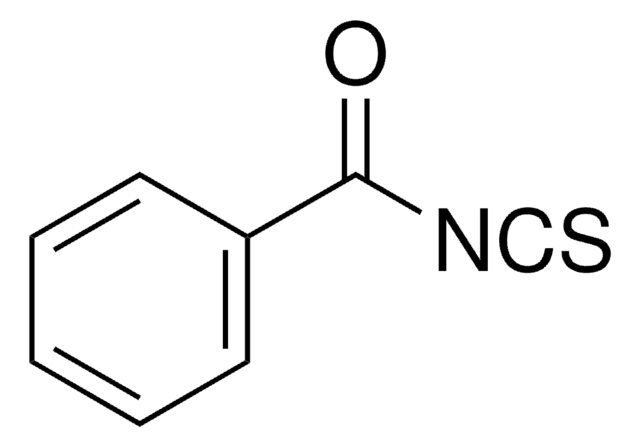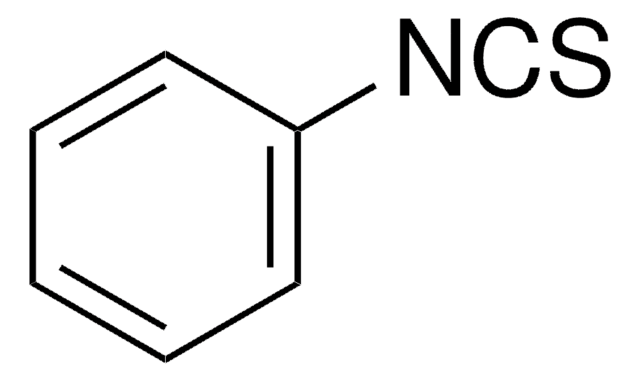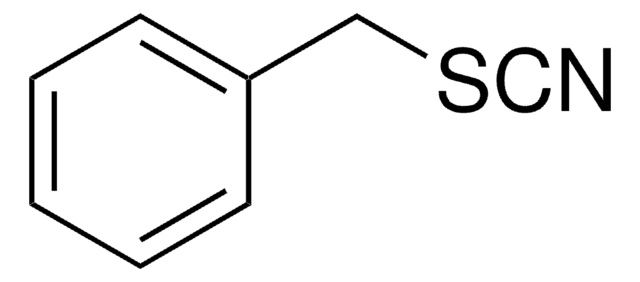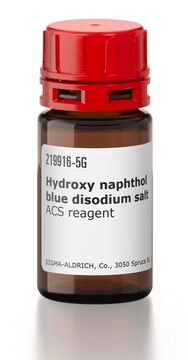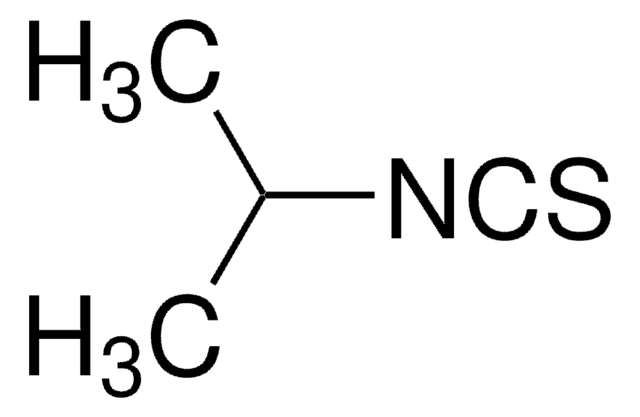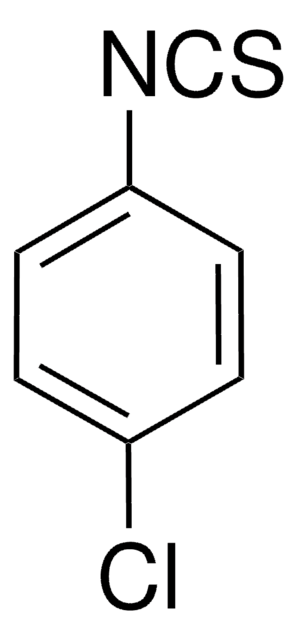252492
Benzyl isothiocyanate
98%
Synonyme(s) :
Benzyl mustard oil, Isothiocyanotaomethylbenzene
About This Item
Produits recommandés
Niveau de qualité
Pureté
98%
Forme
liquid
Indice de réfraction
n20/D 1.601 (lit.)
Point d'ébullition
242-243 °C (lit.)
Densité
1.125 g/mL at 25 °C (lit.)
Groupe fonctionnel
amine
isothiocyanate
phenyl
Température de stockage
2-8°C
Chaîne SMILES
S=C=NCc1ccccc1
InChI
1S/C8H7NS/c10-7-9-6-8-4-2-1-3-5-8/h1-5H,6H2
Clé InChI
MDKCFLQDBWCQCV-UHFFFAOYSA-N
Vous recherchez des produits similaires ? Visite Guide de comparaison des produits
Catégories apparentées
Description générale
Application
- N
- -benzylthioureas by reacting with various amines.
- N-benzyl-O-alkyl carbamates by treating with long-chain alcohols.
- 3-mercapto-1,2,4-triazole building block by reacting with formylhydrazine via acyl thiosemicarbazide intermediate formation.
- S-(N-benzylthiocarbamoyl)-L-glutathione and S-(N-benzylthiocarbamoyl)-L-cysteine.
Mention d'avertissement
Danger
Mentions de danger
Conseils de prudence
Classification des risques
Acute Tox. 4 Oral - Eye Irrit. 2 - Resp. Sens. 1 - Skin Irrit. 2 - Skin Sens. 1 - STOT SE 3
Organes cibles
Respiratory system
Code de la classe de stockage
10 - Combustible liquids
Classe de danger pour l'eau (WGK)
WGK 3
Point d'éclair (°F)
222.8 °F
Point d'éclair (°C)
106 °C
Équipement de protection individuelle
Eyeshields, Faceshields, Gloves, type ABEK (EN14387) respirator filter
Faites votre choix parmi les versions les plus récentes :
Déjà en possession de ce produit ?
Retrouvez la documentation relative aux produits que vous avez récemment achetés dans la Bibliothèque de documents.
Les clients ont également consulté
Notre équipe de scientifiques dispose d'une expérience dans tous les secteurs de la recherche, notamment en sciences de la vie, science des matériaux, synthèse chimique, chromatographie, analyse et dans de nombreux autres domaines..
Contacter notre Service technique
